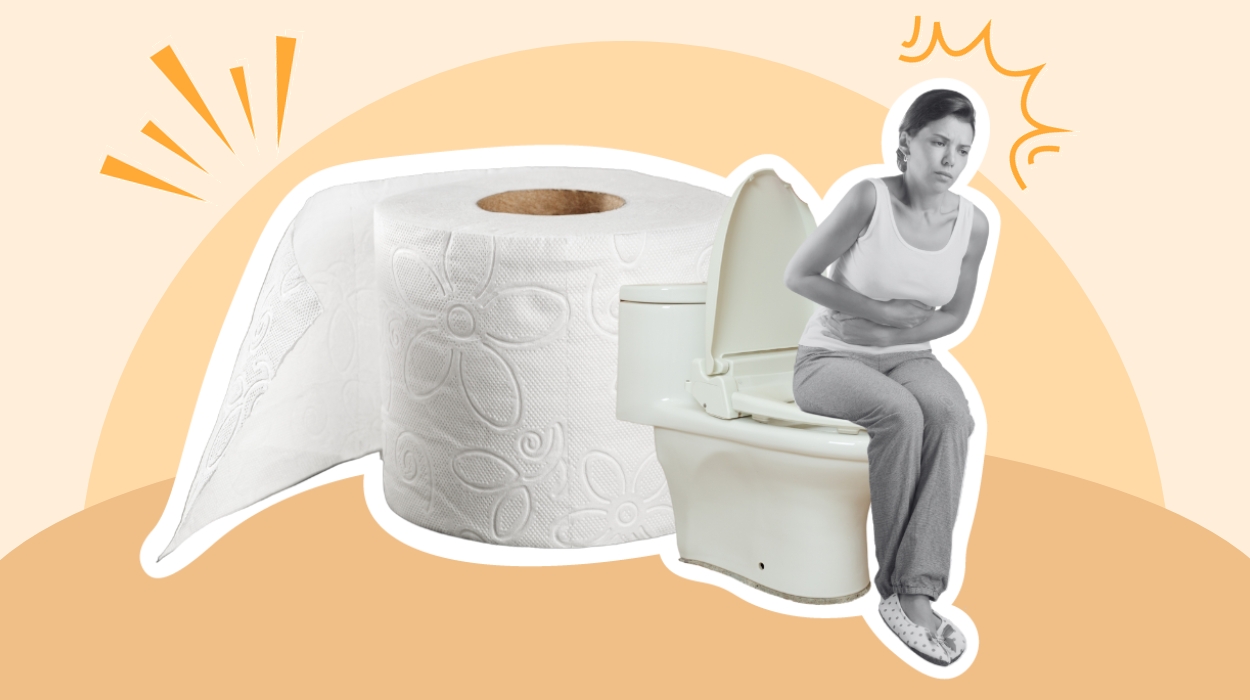Diarrhea is a common sign of gastrointestinal disease and the most common reason people go to the doctor. No best methods have been found for figuring out what’s wrong with people who have diarrhea all the time. The choice of specific tests, when a referral should be made, and how much testing should be done depend on how likely it is that a certain diagnosis is correct, what treatments are available, how bad the symptoms are, what the patient wants, and if they have any other health problems. But in more than 90% of patients, a specific diagnosis can be made.
It is characterized by frequent, loose, or watery stools. While it can be caused by several factors, most cases of diarrhea are caused by infections and in some other cases by the following:
- IBS-diarrhea
- Bile acid diarrhea
- FODMAP malabsorption
- Artificial sweeteners
- Excess alcohol
- Colonic neoplasia
- IBD
- Celiac disease
- Viral or bacterial infections
- Medication use: Erythromycin, NAIDS, magnesium-containing products, metformin, etc.
In many cases, diarrhea is a self-limiting condition that resolves on its own within a few days. However, in some cases, it can be severe and require medical attention. In this article, we will discuss the causes of diarrhea, as well as effective methods for treating and preventing it.
Ways To Get Rid Of Diarrhea
- Hydrate
- Take antibiotics
- Symptomatic treatment
- Take probiotics
- Consume more fiber
- Try drinking rice water
- Avoid gassy and greasy food
- Avoid artificial sweeteners
- Eat dairy items
How To Get Rid Of Diarrhea Fast?

Hydrate
When someone has diarrhea, the most important treatment is rehydration, preferably by mouth with solutions that have water, salt, and sugar. Fruit juices and flavored soft drinks that have been watered down, saltine crackers, and broths or soups may be enough to meet the fluid and salt needs of people who are sick but not too sick. Electrolyte concentrations in fluids used to replace sweat (like Gatorade) are not the same as those in oral rehydration solutions, but they may be enough for a patient with diarrhea who is otherwise healthy and not dehydrated.
Take Antibiotics
Specific antibiotic therapy should be directed to the underlying etiology in patients in whom the diagnosis has been established, but empiric therapy may be appropriate when comorbidities limit diagnostic evaluation or when a diagnosis is strongly suspected. Be sure to take the full course of antibiotics as prescribed, even if your symptoms improve before the medication is finished.
Symptomatic Treatment
When a diagnosis has been made but no definitive treatment is available when a diagnosis has eluded diagnostic evaluation, or as a stopgap measure, while a diagnosis is being made, symptomatic therapy is used to reduce the frequency and severity of chronic diarrhea. Several medicines, such as loperamide, anticholinergic agents, and intraluminal adsorbents, can help stop diarrhea (such as clays, activated charcoal, bismuth, fiber, and bile acid binding resins).
Take Probiotics
As an alternative therapy, probiotics with good bacteria that help keep or repopulate the intestine with nonpathogenic flora can also be used. There are many different probiotics, and each one does something different, so only certain probiotics may be helpful. Lactobacillus GG has been shown to shorten the time that infectious diarrhea lasts in children, and Saccharomyces boulardii may be able to shorten the time that a C. difficile infection lasts.
Taking probiotics can not only help to alleviate diarrhea[1] but to prevent future episodes.
Consume More Fiber
According to The National Institute of Diabetes and Digestive and Kidney Diseases, eating certain foods high in fiber can help to bulk up your stool and make it easier to pass. Good sources of fiber include fruits, vegetables, whole grains, and legumes. However, be careful not to consume too much fiber too quickly, as this can worsen diarrhea symptoms.
Try Drinking Rice Water
Rice water is the starchy liquid left over after cooking rice. It is a good source of electrolytes, which can help to rehydrate your body and alleviate diarrhea symptoms.
Avoid Gassy & Greasy Food
Food that is high in fat and gas-producing can worsen diarrhea symptoms. Also, foods with a high fat content should be avoided until the gut function returns to normal after a severe bout of diarrhea. To get rid of diarrhea fast, avoid foods such as fried foods, greasy foods, and gas-producing foods like beans, broccoli, and Brussels sprouts.
Avoid Artificial Sweeteners
Some people may experience diarrhea symptoms after consuming artificial sweeteners. To get rid of diarrhea fast, it’s best to avoid artificial sweeteners altogether.
Eat Dairy Items
When you have diarrhea, it might be hard to digest dairy products (except yogurt). This is because of secondary lactose malabsorption, which is common after infectious enteritis and can last for weeks or months. So, it makes sense to avoid lactose-containing foods for a while. Also, If you are lactose intolerant,[2] you may experience diarrhea symptoms after consuming dairy products. Go On A BRAT Diet. The BRAT diet[3] is a dietary plan that consists of Bananas, Rice, Applesauce, and Toast. These foods are easy to digest and can help to firm up your stool and alleviate diarrhea symptoms.
What Is Diarrhea?
Diarrhea is a common digestive problem defined as the passage of loose or watery stools, typically at least three times in a 24-hour period. It is a symptom of an underlying condition rather than a disease in itself. Acute diarrhea typically lasts for a short period of time and often resolves on its own. In contrast, chronic diarrhea lasts for several weeks or longer and is caused by different factors/diseases that require medical treatment.
In the majority of cases, diarrhea is caused by a variety of factors, including viral, bacterial, or parasitic infections, food allergies or intolerances, medications, and certain medical conditions such as irritable bowel syndrome or inflammatory bowel disease.
Symptoms of diarrhea generally vary in whether they affect the small or large intestine. Small bowel diarrhea is often watery, has a lot of volume, and is accompanied by cramping, bloating, gas, and, fever isn’t usually a big sign. On the other hand, diarrhea that comes from the large intestine usually causes frequent, regular, small-volume, and often painful bowel movements. Fever and bloody or slimy stools are also common.
Diarrhea can affect people of all ages, and while it is usually not serious, it can be uncomfortable and disruptive to daily life. It is important to take steps to treat and prevent diarrhea but also to address the underlying cause to prevent complication
What Causes Diarrhea?
Diarrhea is caused by a variety of factors,[4] including viral, bacterial, and parasitic infections, food allergies and intolerances, other diseases, and certain medications. The most common causes of acute infection are bacteria (Salmonella, Campylobacter, Shigella, enterotoxigenic Escherichia coli, etc.), viruses (norovirus, rotavirus, adenoviruses, etc.), and protozoa (Cryptosporidium, Giardia, Entamoeba, etc), mainly ingested through contaminated water or food.
Chronic diarrhea, in places with a lot of resources, can be caused by irritable bowel syndrome (IBS), inflammatory bowel disease, lactose intolerance, celiac disease, and chronic infections are common causes (particularly in patients who are immunocompromised). In places with few resources, chronic diarrhea is often caused by long-term infections with bacteria, mycobacteria, or parasites. Functional disorders, malabsorption, and inflammatory bowel disease are also common causes.
Additionally, certain medications can slow down the digestive process, which can lead to diarrhea. In some cases, the cause of diarrhea may be unknown. It is important to see a healthcare provider if diarrhea persists or is accompanied by severe symptoms such as significant weight loss, blood in the stool, or severe abdominal pain.
How To Prevent Diarrhea?

Preventing diarrhea can be done by taking steps to avoid the underlying causes of the condition, such as avoiding contaminated food and water, practicing good hygiene, and taking precautions when traveling to foreign countries. Eating a diet high in fiber, fruits, and vegetables can also help to keep the digestive system healthy.
It is also important to maintain a healthy and balanced diet, avoiding foods that may irritate the digestive tract such as those high in fat and sugar. In addition, avoiding carbonated drinks, artificial sweeteners and certain medications that may slow down digestion can help prevent diarrhea.
For those with a history of diarrhea or a chronic condition such as irritable bowel syndrome or inflammatory bowel disease, taking probiotic supplements can help maintain a healthy balance of gut bacteria and reduce the risk of diarrhea.
If you have a food sensitivity or allergy, it is important to avoid problematic food to prevent diarrhea. If you are unsure what may be causing your diarrhea, it is best to consult with a healthcare provider for a proper diagnosis and treatment plan.
In case of travel, it is important to take precautions such as only drinking bottled water, avoiding street food, and eating only at reputable restaurants. It is also a good idea to bring anti-diarrheal medications as well as oral rehydration solutions[5] in case of emergency.
Overall
Maintaining a healthy lifestyle, being mindful of what you eat and drink, and taking precautions when traveling can help prevent diarrhea. However, if you experience persistent or severe diarrhea, it is important to see a healthcare provider to rule out any underlying conditions or infections.
If you want to be better informed about this, you can follow the precautions recommended for all consumers by the Food Safety and Inspection Services and the Centers for Disease Control and Prevention.
When To See A Doctor?
If your diarrhea isn’t too bad, you might not need to see a doctor, especially if it starts to get better after 48 hours. On the other hand, if you have diarrhea that lasts for more than a few days or if you experience severe symptoms such as severe abdominal pain, blood in your stool, or signs of dehydration, it is important to see a healthcare provider. Additionally, if you have a weakened immune system or underlying medical conditions such as inflammatory bowel disease or digestive disorders, it is important to seek medical attention if you experience diarrhea.
If you are unsure if your symptoms warrant a visit to the doctor, it is always best to err on the side of caution and seek medical advice. A healthcare professional can help determine the cause of your diarrhea and recommend the best course of treatment. They may also be able to recommend preventative measures to help you avoid getting diarrhea in the future.
Conclusion
Diarrhea is a common digestive disorder that can be caused by a variety of factors, including bacterial or viral infections, medication side effects, food sensitivities, and inflammatory bowel diseases. While some cases of diarrhea may be mild and short-lived, others can be chronic and debilitating. To get rid of diarrhea fast, it is important to hydrate, take anti-diarrheal medication, consume more fiber, try drinking rice water, avoid gassy and greasy foods, avoid artificial sweeteners, and eat dairy items.
Additionally, it is important to prevent diarrhea by practicing good hygiene, eating a balanced diet, and avoiding contaminated foods. If your diarrhea symptoms are severe or persistent, it is important to see a healthcare provider for further evaluation and treatment. Overall, it is essential to be proactive in managing your diarrhea symptoms and taking steps to prevent future episodes.
Frequently Asked Questions
Diarrhea can last anywhere from a few days to a couple of weeks, depending on the underlying cause. Acute diarrhea typically lasts for 2-3 days, while chronic diarrhea can last for several weeks or longer.
The best way to treat diarrhea depends on the underlying cause, but some common treatments include staying hydrated, taking anti-diarrheal medication, specific antibiotics, consuming more fiber, and taking probiotics.
Foods that should be avoided when experiencing diarrhea include greasy or fatty foods, high-sugar foods, carbonated drinks, artificial sweeteners, dairy products, and foods that are known to cause gas.
Antibiotics are usually prescribed for diarrhea caused by bacterial infections. If your diarrhea is caused by a viral infection, antibiotics will not be effective. It is important to consult a healthcare provider to determine the cause of your diarrhea and the appropriate treatment.
Probiotics can help to alleviate diarrhea symptoms by restoring the balance of bacteria in the gut. They can be taken as supplements or found in fermented foods such as yogurt, kefir, and sauerkraut.
 Expert's opinion
Expert's opinion
